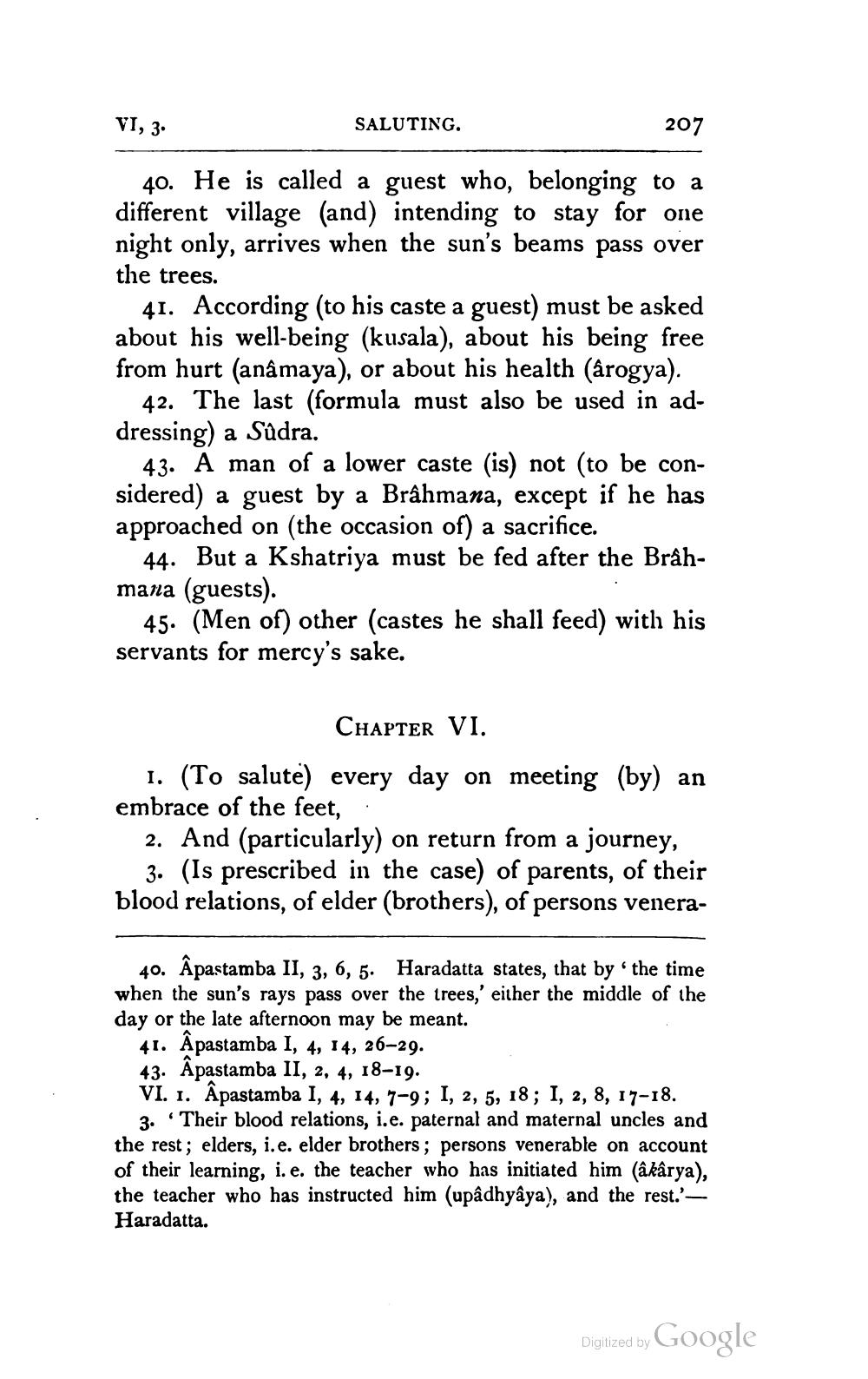________________
VI, 3.
SALUTING.
207
40. He is called a guest who, belonging to a different village (and) intending to stay for one night only, arrives when the sun's beams pass over the trees.
41. According (to his caste a guest) must be asked about his well-being (kusala), about his being free from hurt (anâmaya), or about his health (arogya).
42. The last (formula must also be used in addressing) a Sûdra.
43. A man of a lower caste (is) not (to be considered) a guest by a Brâhmana, except if he has approached on (the occasion of) a sacrifice.
44. But a Kshatriya must be fed after the Brâhmana (guests).
45. (Men of) other (castes he shall feed) with his servants for mercy's sake.
CHAPTER VI. 1. (To salute) every day on meeting (by) an embrace of the feet, :
2. And (particularly) on return from a journey,
3. (Is prescribed in the case) of parents, of their blood relations, of elder (brothers), of persons venera
40. Âpastamba II, 3, 6, 5. Haradatta states, that by the time when the sun's rays pass over the trees,' either the middle of the day or the late afternoon may be meant.
41. Apastamba I, 4, 14, 26-29. 43. Apastamba II, 2, 4, 18-19. VI. 1. Âpastamba I, 4, 14, 7-9; 1, 2, 5, 18; 1, 2, 8, 17-18.
3. Their blood relations, i.e. paternal and maternal uncles and the rest; elders, i.e. elder brothers; persons venerable on account of their learning, i.e. the teacher who has initiated him (akarya), the teacher who has instructed him (upâdhyâya), and the rest.' - Haradatta.
Digitized by Google




